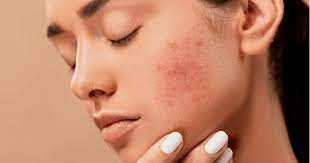Common Skin Conditions: Causes, Symptoms, and Treatment Options
Skin conditions are prevalent health issues that affect people of all ages and backgrounds. They can vary in severity, ranging from mild irritations to chronic conditions that significantly impact the quality of life. Understanding the causes, symptoms, and available treatment options for common skin conditions is essential for proper management and relief. This article aims to provide an overview of some frequently encountered skin conditions, including their underlying causes, associated symptoms, and various treatment approaches.
Acne
Acne is a common skin condition that affects millions of people worldwide. It occurs when hair follicles become clogged with oil and dead skin cells, leading to the formation of pimples, blackheads, or whiteheads. Hormonal imbalances, genetics, and certain medications can contribute to the development of acne. Symptoms include redness, inflamed bumps, and sometimes pain. Treatment options range from topical creams and oral medications to lifestyle modifications such as proper skincare routines and a balanced diet.
Eczema
Eczema, also known as atopic dermatitis, is a chronic inflammatory skin condition characterized by dry, itchy, and red patches. It often starts in childhood and can persist into adulthood. The exact cause of eczema is unknown, but it is believed to be influenced by genetic and environmental factors. Common symptoms include intense itching, skin rash, and skin thickening. Management involves moisturizing the skin, avoiding triggers like certain fabrics or allergens, and using prescribed medications like corticosteroids or immunomodulators.
Psoriasis
Psoriasis is a chronic autoimmune disease that speeds up the growth cycle of skin cells, resulting in the accumulation of thick, scaly patches on the skin's surface. It is caused by an overactive immune system and may have genetic links. Symptoms include redness, silver-white scales, and itching. Treatment options for psoriasis include topical creams, phototherapy, systemic medications, and biologic drugs. Lifestyle changes like stress management and avoiding triggers can also help manage symptoms.
Rosacea
Rosacea is a common skin condition that primarily affects the face, causing redness, visible blood vessels, and acne-like bumps. The exact cause of rosacea is unknown but may involve genetic and environmental factors. Common triggers include sun exposure, hot beverages, spicy foods, and alcohol. Treatment options include topical medications, oral antibiotics, laser therapy, and lifestyle modifications such as gentle skincare routines and avoiding triggers.
Dermatitis
Dermatitis refers to inflammation of the skin, resulting in redness, itching, and sometimes blisters or oozing. It can be caused by contact with irritants or allergens, exposure to certain chemicals or substances, or underlying health conditions. Symptoms vary depending on the type of dermatitis but generally include rash, dryness, and swelling. Treatments range from avoiding triggers and using moisturizers to topical corticosteroids or oral medications prescribed by a healthcare professional.
Conclusion
Common skin conditions can significantly impact an individual's physical and emotional well-being. Understanding the causes, recognizing the symptoms, and exploring available treatment options are crucial for managing these conditions effectively. While over-the-counter remedies can provide relief for mild cases, it is advisable to seek medical advice when dealing with persistent or severe symptoms. Dermatologists can offer personalized diagnosis, guidance, and treatment plans tailored to each individual's needs. By taking proactive steps to care for our skin and seeking appropriate medical assistance, we can successfully manage and alleviate the discomfort associated with common skin conditions.






